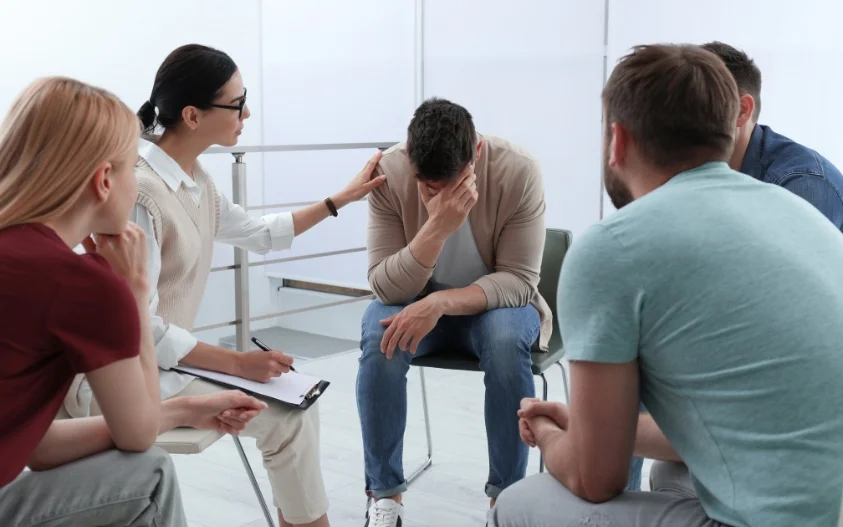24/7 Helpline:
(866) 899-111424/7 Helpline:
(866) 899-1114
Learn more about Bipolar Disorder Treatment centers in Saline County

Other Insurance Options

Highmark

Providence

Ceridian

CareSource

UnitedHealth Group

Holman Group

Group Health Incorporated

Choice Care Network

Lucent

American Behavioral

Magellan

BHS | Behavioral Health Systems

Excellus

Cigna

Sliding scale payment assistance

Coventry Health Care

Magellan Health

UMR

Absolute Total Care

Sutter

Ashby House
Ashby House is a private rehab located in Salina, Kansas. Ashby House specializes in the treatment o...

Veridian Behavioral Health
Veridian Behavioral Health is a private, traditional rehab located in Salina, KS. Veridian Behaviora...





















Innovative Solutions Addiction Treatment Center
Innovative Solutions Addiction Treatment Center is a private rehab located in Salina, Kansas. Innova...

Central Kansas Foundation
Central Kansas Foundation is a non-profit organization that provides quality and affordable alcohol ...

























































































































